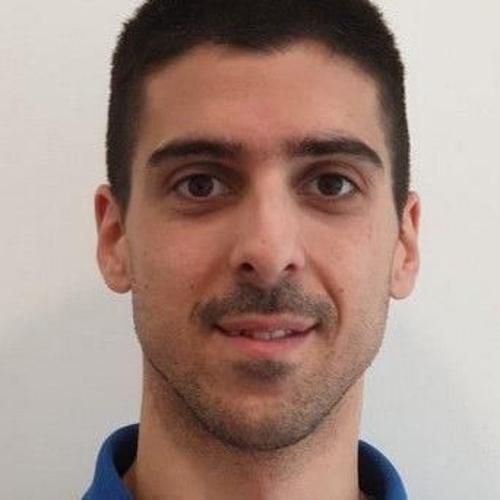Filipe Manuel
Clemente
Investigador desde 2024


Universidad de Granada
Granada, EspañaPublicaciones en colaboración con investigadores/as de Universidad de Granada (66)
2024
-
Acute:chronic workload ratio and training monotony variations over the season in professional soccer: A systematic review
Proceedings of the Institution of Mechanical Engineers, Part P: Journal of Sports Engineering and Technology, Vol. 238, Núm. 4, pp. 401-416
-
Current practices in physical fitness assessment and monitoring among coaches of individual and team sports: a survey in Portugal, Spain, and Romania
Biology of Sport, Vol. 41, Núm. 4, pp. 219-230
-
Effects of 16-weeks of strength training on jump height and anthropometric variables in U19 semi-professional male soccer players
International Journal of Sports Science and Coaching, Vol. 19, Núm. 4, pp. 1641-1650
-
Effects of 8 weeks pre-season training on physical fitness, heart rate variability and cognition in women soccer players
Heliyon, Vol. 10, Núm. 2
-
High-intensity interval training programs and their impact on endurance performance in handball players: A systematic review
Biomedical Human Kinetics, Vol. 16, Núm. 1, pp. 113-130
-
Principal Component Approach and Relationship between Nomination Scale for Identification of Football Talent and Physical Fitness in Young Soccer Players
Applied Sciences (Switzerland), Vol. 14, Núm. 17
-
Principal components approach of physiological and physical metrics collected through GPS technology in soccer referees
Proceedings of the Institution of Mechanical Engineers, Part P: Journal of Sports Engineering and Technology, Vol. 238, Núm. 2, pp. 134-143
-
Relationships among Physical Fitness, External Loads, and Heart Rate Recovery: A Study on Futsal Players during an Overseas Congested-Weeks Training Camp
Journal of Human Kinetics , Vol. 92, pp. 73-85
-
Relationships between physical fitness and match running demands during a futsal congested-weeks training camp
Biology of Sport, Vol. 41, Núm. 4, pp. 11-30
-
Technical and Physical Load Variables at Different Positions in U18 Semi-Professional Soccer Players: Differences between the First and Second Half
Applied Sciences (Switzerland), Vol. 14, Núm. 13
2023
-
An Explanatory Model of Violent Behavior, Self-Concept, and Alcohol, Tobacco, and Cannabis Consumption in Secondary Education Students
BioMed research international, Vol. 2023, pp. 1971858
-
Differences and relationship in functional movement screen (FMS™) scores and physical fitness in males and female semi-professional soccer players
PeerJ, Vol. 11
-
Differences between U23 and older semi-professional soccer players in perfectionism and passion: exploring determinant relationship between variables
Frontiers in Psychology, Vol. 14
-
Effectiveness of Conservative Interventions After Acute Hamstrings Injuries in Athletes: A Living Systematic Review
Sports Medicine, Vol. 53, Núm. 3, pp. 615-635
-
Effects of combined plyometric, strength and running technique training program on change-of-direction and countermovement jump: A two-armed parallel study design on young soccer players
Gait and Posture, Vol. 105, pp. 27-34
-
RELATIONSHIP BETWEEN TALENT IDENTIFICATION AND CHANGE OF DIRECTION IN YOUNG BASKETBALL PLAYERS
Physical Education Theory and Methodology, Vol. 23, Núm. 1, pp. 133-142
-
Relationship between cognitive functioning and physical fitness in regard to age and sex
BMC Pediatrics, Vol. 23, Núm. 1
-
Testing variations of methodological characteristics in the 5-0-5 test: impact of the linear sprint on change-of-direction deficit in adult male soccer players
Human Movement, Vol. 24, Núm. 2, pp. 127-135
-
Variations of external workload across a soccer season for starters and non-starters
Proceedings of the Institution of Mechanical Engineers, Part P: Journal of Sports Engineering and Technology, Vol. 237, Núm. 3, pp. 150-159
-
Variations of wellbeing measures between player’s participation in a match and a playing position: a study of youth soccer players
Journal of Physical Education and Sport, Vol. 23, Núm. 6, pp. 1441-1448